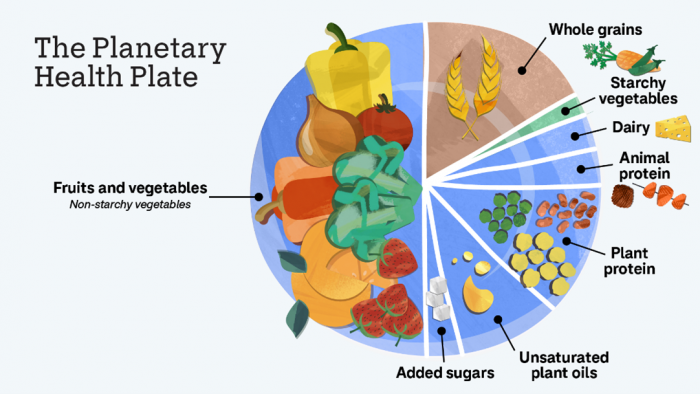The Flexitarian Diet is the New Normal
Posted by Phil Heler on January 21, 2024There has been a remarkable change in our national diet towards what is now a more plant-based diet. A Flexitarian diet is what it suggests. It is a less drastic and a more realistic diet that reduces meat intake rather than eliminates it completely.
Here we are in 2024. The new year comes with landmark anniversaries. On January 1st, 1924, the first ever shipping forecast was broadcast on the radio. It is essential information for those at sea, but it also has another very different side to its personality.
For some of us on dry land, far away from the perils of our oceans, it is a relaxing ‘poetic litany of mystical faraway places’ before we sleep. Broadcast at one minute past midnight, it has been called ‘the nation’s lullaby’. Most of the 31 areas have a geographical designation. My favourite doesn’t. This is the ‘Forties’ which is an area where the sea is consistently roughly 40 fathoms (73 metres) deep. This is a shallow region for the North Sea, which is generally around 95 metres deep.
But there are other anniversaries that are a sign of the times. In 2014 Matthew Glover and his partner, Jane Land, founded ‘Veganuary’ as a non-profit organization. The founders of Veganuary are interesting characters. Matthew Glover is the son of a family who ran a butcher’s shop and is a former double-glazing salesman. Sometimes truth is stranger than fiction. Their main goals are explicit: to promote plant-based diets and to raise awareness about the environmental, health, and ethical benefits of veganism for the month of January.
Ten years on and this movement has become huge. Since its inception, Veganuary has grown significantly, becoming a global movement. In 2014 they had 3,300 participants whereas last year they had 770,000 people take part. ‘Veganuary’ serves the worthy as a potential catalyst for personal transformation, challenging us to reconsider our dietary choices. This is no bad thing.
Veganism has in the past polarised opinion and sometimes had an awkward relationship with the public. As one person suggested 15 years ago ‘the behaviour patterns necessary to live a vegan lifestyle in a decidedly un-vegan world must become extreme in order to remain a vegan’.
Matthew Glover himself pointed out in 2019 ‘there does seem to be an ‘us and them’ developing at times between vegans and the farming community, and also between vegans and the general public at large’. However, opinions change. Plant based diets, whether vegan or otherwise, are becoming increasingly adopted by the public, recognised by food manufacturers and hospitality sectors.
Indeed, in recent years, there has been a remarkable change in our national diet towards what is a more plant-based diet. I can use myself as an example. I now adopt a flexitarian diet. A flexitarian diet is what it suggests. It is a less drastic and more realistic diet that reduces meat intake rather than eliminates it completely.
It is a flexible eating style that emphasizes the addition of plant or plant-based foods. It incorporates dairy and eggs and encourages meat to be consumed less frequently and/or in smaller portions. The IPCC (Intergovernmental Panel on Climate Change) prior to the pandemic called for us all to adopt a plant-based flexitarian diet called the ‘Planetary Health Diet’. They suggested one in which meat is only eaten perhaps once or twice a week. The diet negotiates key challenges. It is sustainable environmentally, achievable in terms of production, and better for our health.
A recent body of research from a leading supermarket suggested that 21% of us now claim to be either flexitarian or vegetarian. Pescatarians account for 3% of the population, while 3% of Brits say they follow a vegan diet and lifestyle. About 60% of vegans and 40% of vegetarians surveyed said they had adopted the lifestyle over the past five years, with 55% citing animal welfare concerns, 45% health reasons and 38% environmental issues.
Younger adults are more likely to be vegan. The demographic most commonly adhering to a vegan diet in the UK is women aged 18-34 years old. This finding is consistent with results from other countries. So, the number of vegans is likely to continue to grow, as younger people pass their diets down to their children.
The vast increase in demand for plant-based food alternatives has been well met by the food industry. In 2022 in the UK alone, there were more than 770 new products launched to coincide with ‘Veganuary’. This included offerings from high profile companies like McDonalds, Cadbury, Lindt and Starbucks.
One of the biggest reasons for the rise of meat-free diet choices is of course the food itself. Food technology has come on in leaps and bounds in the decades since the movement was established, and as a result vegan food catches the eye of more people than ever. The global food market gives a clear indication of how veganism is exploding around the world. The plant-based food market in Europe is expected to grow by 10 per cent a year from 2022 to 2029, to reach 16.7 billion US dollars by 2029.
I personally have no wish to eliminate meat completely from my diet. I understand that high meat consumption, particularly red meat and processed meat, negatively affects our health. Poor diet contributes to an estimated 64,000 unnecessary deaths every year in England. In 2023 people in the UK consumed less meat than at any point since records began in the 1970s. On average we now eat 854g of meat a week. That is down from 976g the previous year and 949g the year before that.
This marks an overall 14% decrease since 2012 – with carcass meat consumption including beef, pork and lamb falling by 26% and chicken and other meat products falling by 11% in the past decade. It is of course worth pointing out that the data last year overlapped the cost-of-living crisis and rapid food inflation. Many of us are also becoming increasingly aware of the impact of global warming.
No part of our economy matters more than food. We cannot afford to ignore new challenges to our food security. The world’s population is growing, with mass migration to cities, resource competition intensifying between nations, huge stress on water supplies and climate change altering weather. Unfortunately, meat production is one of the largest contributors to global warming and environmental degradation. Between 2010 and 2050, because of expected changes in population and income levels, the environmental impacts of food production could increase by 50–90%. This means we would be reaching levels that are beyond the planetary boundaries that define a safe operating space for humanity.
Food security has become a matter of national concern in the UK. As a country, even at government level, we have begun to assess our food security in the wake of a changing climate. An independent review (National Food Strategy) commissioned by the government was published in the 2020 Report.
It suggested that one of the most effective ways to reduce carbon emissions and free up land for nature is to reduce consumption of animal proteins. Roughly 85% of the land used to feed us is used for livestock farming, even though meat and dairy only account for one third of our calories. Plant based proteins produce, on average, 70 times less greenhouse gas emissions than an equivalent amount of beef and use more than 150 times less land.
A vegan diet may well be too extreme for me and perhaps many others, but it does advocate for sustainable food choices with the urgent need for environmentally conscious actions to combat climate change. It does provoke thought and make us analyse the choices we make.


